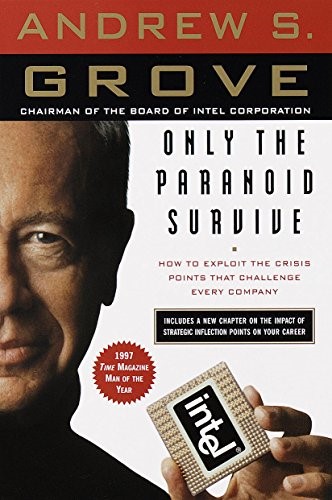“A strategy delineates a territory in which a company seeks to be unique.”
Michael Porter (*1947), US-american economist
This is probably not the most obvious definition of the term strategy, at least not at first glance. But the best strategy might be worthless if it ultimately leads to a “red ocean”, i.e. where many competitors are already fighting for market share, mostly driven by price? The better strategy is surely to differentiate yourself and find or develop a „blue ocean“. A new market or a market niche in which you can generate new demand and in which competitors are still irrelevant.
Andy Grove, who made Intel Corporation what it is still today and who was its CEO from 1987 until 1998, talks in his book “Only the Paranoid Survive“ about the “Strategic Inflection Point“ that every company will always reach at some point in time. Also at this point, it is necessary to develop a new strategy and reposition itself. This very often involves major change and transformation processes that the management team has to develop and get through together with their teams and employees. But the change in this case is a positive one and should be seen as a motivation, because it is driven by a new innovative strategy. Only those companies which reinvent themselves again and again at these strategic inflection points will also be successful in the long term – whether you are a startup developing its first big strategy or an established company looking to reposition itself.

The following questions arise:
What is our vision, where do we want to be in 10 years from now?
What do we want to achieve in the medium term, in the next 2-3 years?
What do we need to implement in the next 12 months?
How do we ensure that we are still on track?
Do we have the right leadership team to achieve our goals?
Is our organization set up correctly?
How do we take the entire team along for this ride?
Which transformation processes do we need to prepare and go through?
